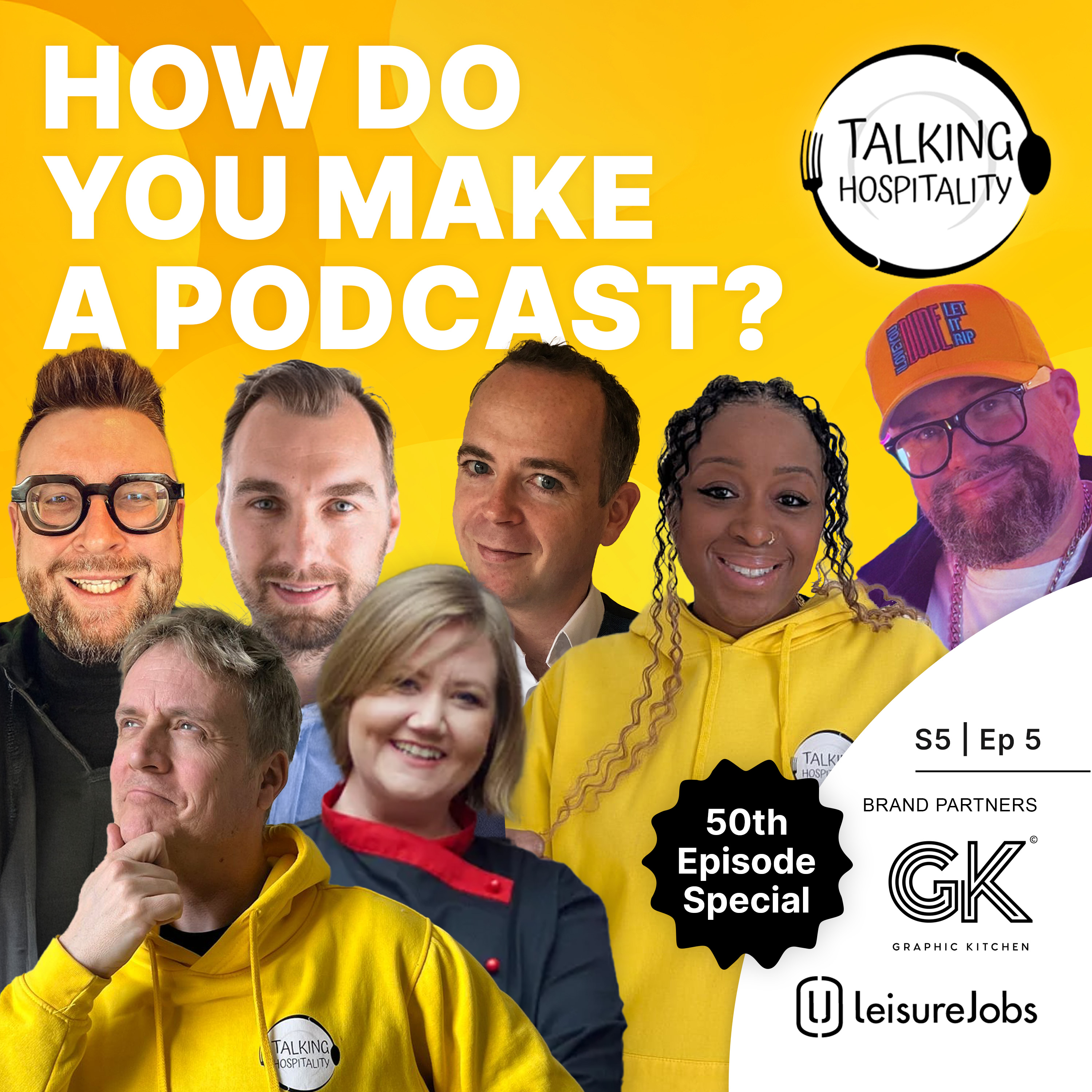Is Podcasting the New Power Tool for Hospitality?

There was a time when saying “I’ve got a podcast” might have prompted an eye-roll or two. But not anymore. In hospitality, podcasting has evolved into a credible, creative, and downright powerful way to build community, share knowledge, and get your voice heard.
To mark 50 episodes of Talking Hospitality, we gathered some of the UK’s most brilliant hospitality podcasters—Mark McCulloch, Phil Street, Sarah Kettel, Shell Righini, Michael Tingsager, Tracey Rashid, Kieron Bailey, and yours truly—to reflect on why we podcast, what it takes to keep going, and what we’ve learned from putting our voices out there.
What came out of that conversation? Podcasting is not a side hustle. It’s a service. And in many cases, it’s a lifeline.
It’s Not Just Content—It’s Connection
Every panellist shared a common thread: the deep, often surprising, impact of human connection. Shell Righini, who hosts We Recovered Loudly, reminded us that when someone opens up about addiction, trauma, or recovery, it’s not a performance—it’s courage. And it’s healing. Sometimes, it’s the first time they’ve told their story out loud. That’s powerful.
Kieron Bailey, who launched People on Purpose after a tough personal period, echoed this. “It’s a way to reconnect with people and purpose when both feel far away.” And as anyone who’s spent years working in hospitality knows—it’s people that make this industry what it is.
You Don’t Need to Be Famous
Let’s bust a myth. You do not need to be a celebrity or influencer to start a podcast. Phil Street, who hosts Hospitality Meets, said it beautifully: “If your experience is worth something to you, it’s worth something to someone else.”
Talking Hospitality started as a positive antidote to the doom and gloom of COVID headlines, spotlighting innovation and resilience when our industry was on its knees. We didn’t wait to be experts. We just started.
The secret? Consistency, clarity of purpose, and remembering who you’re talking to. As Timothy R Andrews shared, “95% of podcasts don’t make it past episode four. You need to know why you’re doing it.”
The Gear Doesn’t Matter (Much)
You can spend £800 on a mic if you want (Mark McCulloch does), or you can start with a £50 USB mic from Amazon. The point is: don’t let kit be the barrier.
What matters more is your story, your structure, and your sound. And, as Tracey Rashid reminded us, “Your voice is a piece of kit, too.” Own it.
Mental Health Matters
There’s a real thread of mental health that runs through this episode—and podcasting itself, for many of us, has been part of the remedy. The courage it takes to speak openly, or just show up weekly and say, “Here’s what I care about,” has been transformative.
Vulnerability isn’t weakness, as Kieron reminded us. It’s leadership. It’s why our podcasts matter—and why people keep tuning in.
What We’ve Learned (And Why You Should Start One)
Here are just a few gems from our 50th episode celebration:
-
Have a point. Podcasts without purpose fizzle out.
-
Be willing to evolve. Your voice will change—and that’s a good thing.
-
Don’t try to please everyone. Know your niche and speak to them directly.
-
Use your voice, not someone else’s. You don’t need to be perfect. You need to be real.
-
Podcasting is legacy work. It’s content that lasts—and helps.
So, is podcasting the new secret weapon for hospitality professionals?
We think it just might be.
Because in a people-first industry, telling real stories, building real relationships, and being brave enough to talk about what matters—that’s not just good podcasting. That’s good hospitality.
References




